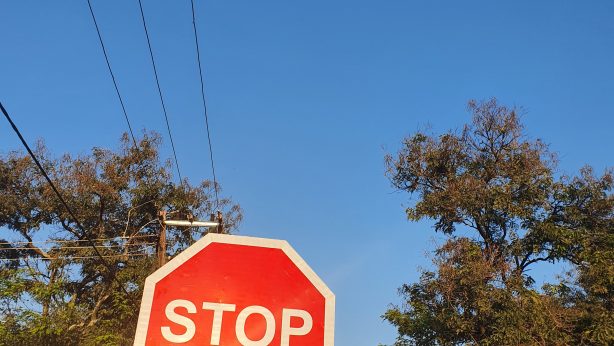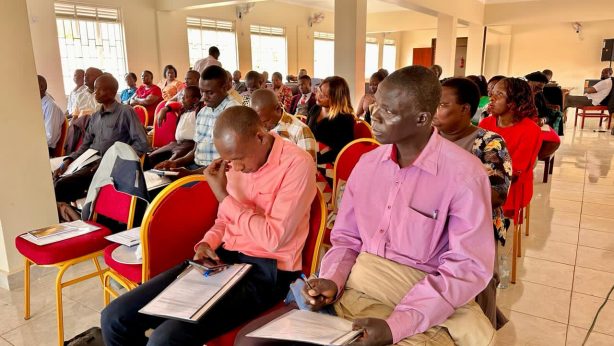Accountability: Making it work at a young age
“For [students] to feel free and open to me, I must show them that they can talk to me, they can come to me whenever they have something to talk about” – Headteacher, Sikonge Primary School
Accountability means holding everyone responsible for their performance, for what they do. I think it means students, like everybody else, should be expected to perform their best.
A couple of weeks ago, my colleagues and I travelled to Sikonge, Tabora as part of our monitoring visit to one of our projects implemented in Tabora and Mwanza.
This project, in partnership with Christian Social Services Commission (CSSC), aims at empowering Jumuiya members to get involved in their children’s school progress.
While in Tabora, we paid a visit to Sikonge Primary School where we were all amazed by the environment.
We were welcomed by trees with huge name tags beside them. My first thought was that they had been planted by school visitors like us. To my surprise, it was the students themselves.
“My students are the ones responsible for these trees and all the surroundings”, said the headteacher as he was inviting us to his office. “I push my students to understand how to be responsible and accountable for their actions in their lives.” The trees, it seems, are part of his methods.
According to the headteacher, this system is helping the students to understand the impact of their actions while at school and home. If the tree doesn’t grow and has the student’s name beside it, the student feels compelled to be as creative and resourceful as they can to ensure respect for their name.
Along the same lines, this school has a system for the Standard 7 students that I haven’t seen elsewhere. I found it very creative.
Students paired in two, and each composes 45 questions for the other. These questions are answered every Friday and Saturday and marked by the students themselves. Later on, each question paper is discussed in a class to help every student learn.
“I created this system to help the students come together and learn from each other by testing each other’s ability to compose and answer questions based on the topics they have covered in class”, explained the headteacher, proudly.
We visited the school on a Friday afternoon. All students had left for home except those in Standard 7. And coincidentally they were in class awaiting the head teacher’s instructions on starting the exams that they had composed for each other.
“Follow me,” instructed the headteacher. We all got on our feet. We went to a class full of happy students who stood in unison to greet us. It reminded me of when I was in primary school, but I don’t remember being that happy.
The headteacher went on with his business after he introduced us. He called out each pair and instructed them on what to do including exchanging their papers and where to sit and how long the test would last.
All this happened while the headteacher made jokes with his students. And they were all laughing like good old friends. We were so impressed. I could see my colleagues smiling uncontrollably.
“Ahh ‘Mwalimu’ this is just too easy for me, I will be done in no time. What kind of a test is this?” Said one student with a laugh after he exchanged his papers with his partner.
On our way out, we asked him why he was so friendly with the students. “For them (students) to feel free and open to me, I must show them that they can talk to me, they can come to me whenever they have something to talk about”, said the headteacher.
“They spend most of their time at school. They need to feel safe for them to like coming to school but also to be ready to learn. I know everybody’s story and that helps me to understand them and find a way to help them”.
The Jumuiya project that has been implemented by Twaweza and CSSC aimed at helping parents to realise the importance of getting involved and being part of their children’s learning process.
Throughout the implementation of this project, parents in the Jumuiya were given story-based discussion guides that showed by example what it means to be part of children’s learning process. The emphasis was on participating in school activities such as school meetings as well as providing food to their children while at school as per the Elimu Msingi Policy of 2016.
The idea behind it is that for learning to happen, everybody has to be accountable. Government, teachers, parents and students have to be in harmony.
When all these work together, learning outcomes are higher. For example, in Sikonge Primary School, parents in all classes meet once in a while to discuss the progress of their children’s learning. In these meetings, parents and teachers sit together to see how their children are doing.
“This has helped parents to also be accountable for their children’s learning progress. When they discuss the performance, it is the parent who will either lose face or keep face in the meeting based on how their child has performed. It forces the parent to take action at home in helping their children progress in school. ” said the headteacher.
Through these parent-teacher meetings, in 2018, they all agreed that it was important for their children to have food in school. As per policy, parents and teachers wrote a letter to the District Executive Director (DED) to seek permission for parents to provide food for their children while at school. The permit was granted.
Parents sat together and formed a committee that would oversee these contributions and make sure that children get food while at school.
I find this practice compelling. If it works at Sikonge Primary School, why can’t it work in other schools?
Sikonge Primary School and most especially its headteacher shows us what happens when we are held accountable from an early age, when we collaborate to achieve more together and when we leave spaces for many voices and views.


